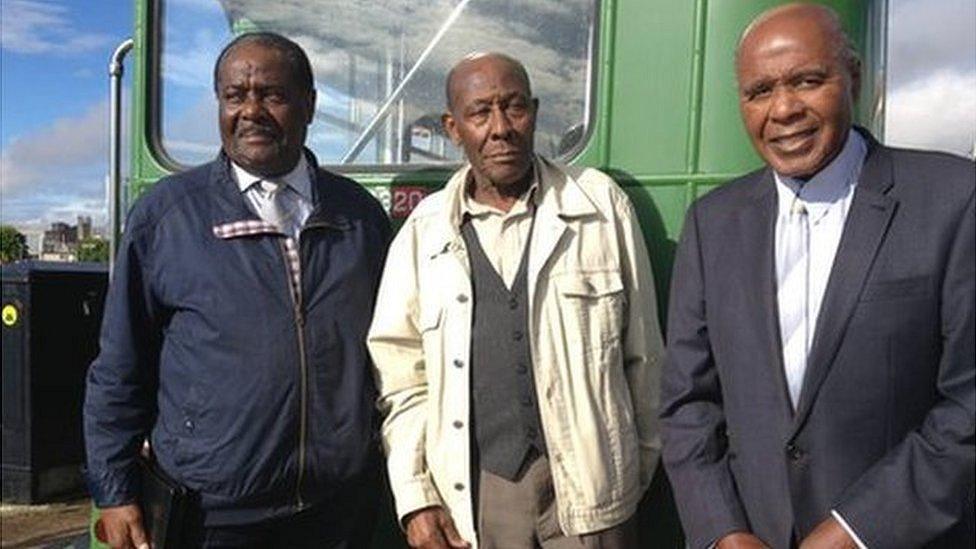Bristol bus boycott activists meet MPs at Westminster
- Published
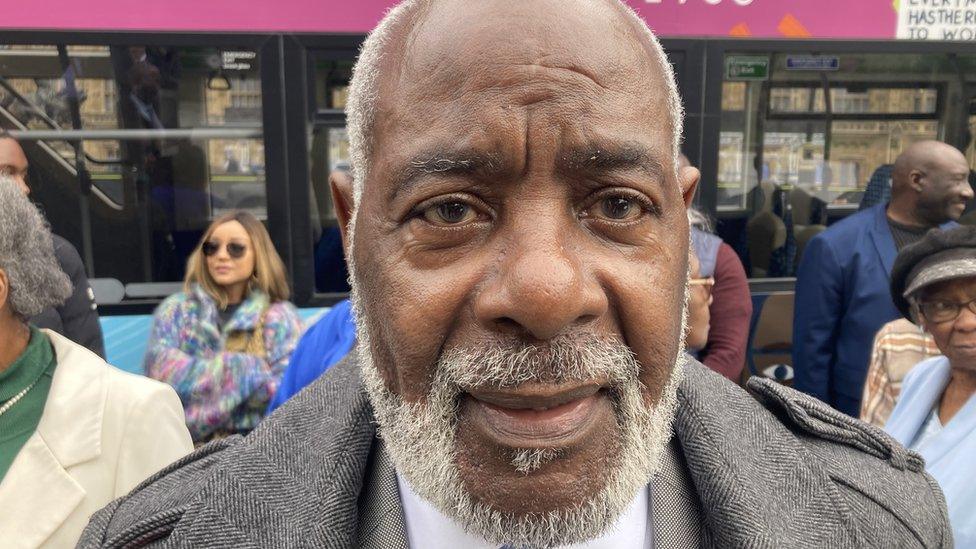
Guy Bailey, who was barred from a job interview in 1963, said: 'I am very proud of our achievement'
Campaigners who organised Bristol's bus boycott 60 years ago have met politicians on a visit to parliament.
It comes after the activists who fought against racial discrimination over the allocation of jobs on Bristol buses were invited to Westminster.
The boycott began in 1963, when the Bristol Omnibus Company refused to hire black drivers and Guy Bailey OBE was barred from a job interview.
"I am very proud of our achievement," Mr Bailey said.
"Not only for then, but for today and tomorrow," he added.
The campaigners and their relatives were invited to parliament by shadow culture secretary Thangam Debbonaire.
The group met with the shadow equalities minister Anneliese Dodds and Labour Party leader Sir Keir Starmer.
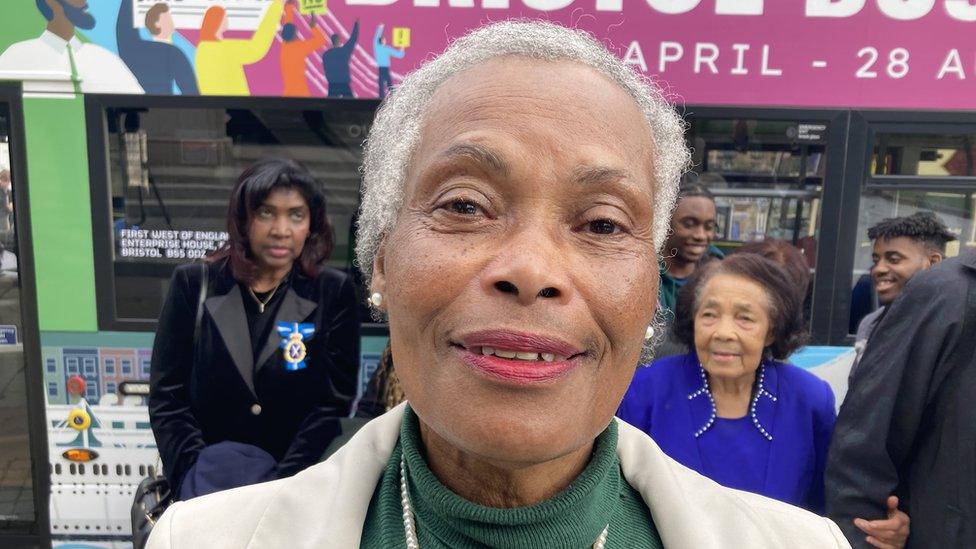
Joyce Morris, one of the activists, said she was 'pleased to be here, that we've come this far'
The campaign in Bristol paved the way for the Race Relations Act 1965 - the UK's first piece of legislation to address racial discrimination.
"It's a lasting effort for all of us in breaking down the barriers of racism," Mr Bailey said.
Joyce Morris, who was involved in the boycott, added: "At the time we were experiencing a hostile environment, people were saying things like 'No Blacks, No Dogs, No Irish', or 'Go back to where you come from.'"
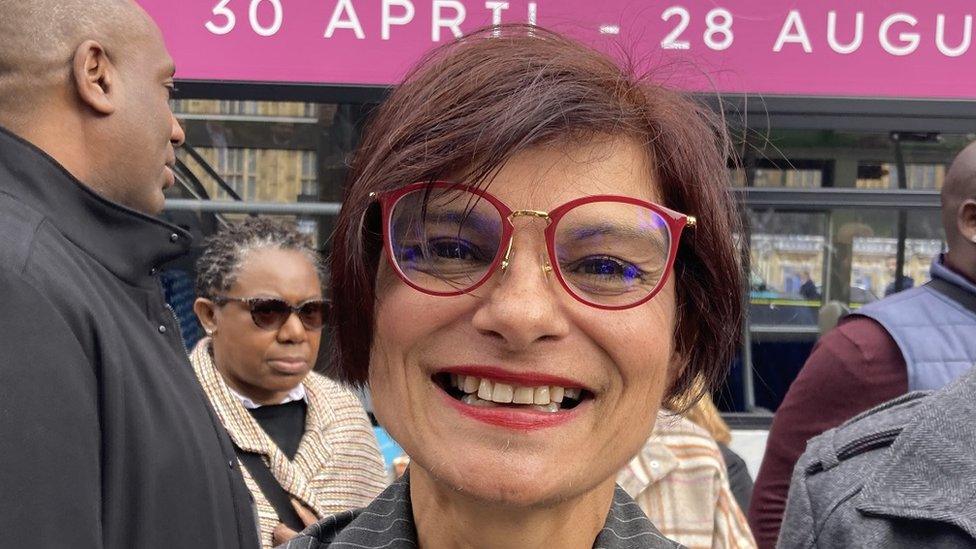
Thangam Debbonaire, shadow culture secretary, invited campaigners and their relatives to parliament to thank them
Ms Debbonaire said: "These guys campaigned hard and they won.
"They didn't just win in Bristol, they won here [in Westminster] too because we ended up with the country's first Race Relations Act."
Ms Morris added: "I'm pleased to be here today, that we've come this far.
"I hope it will continue with young people."

Follow BBC West on Facebook, external, X, external and Instagram, external. Send your story ideas to: bristol@bbc.co.uk , external
Related topics
- Published28 August 2023
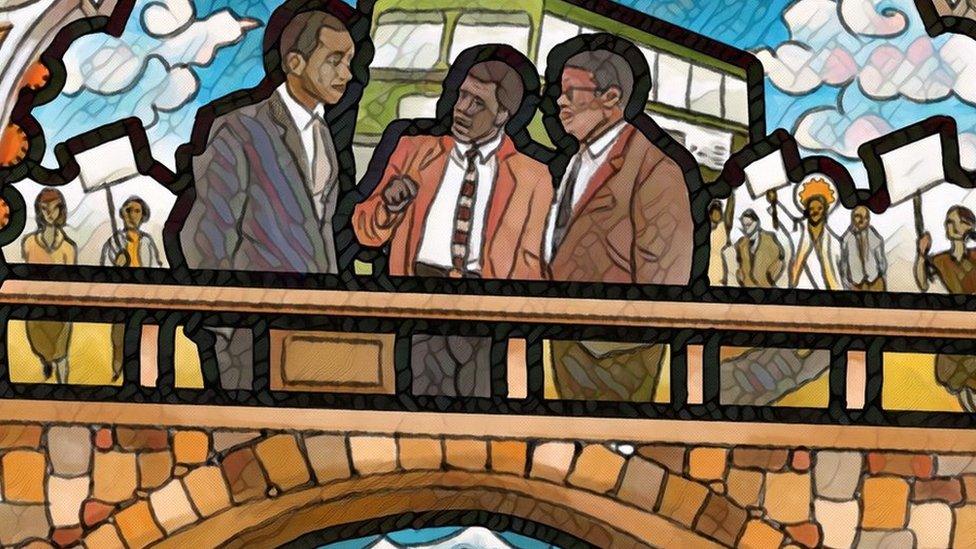
- Published30 April 2023
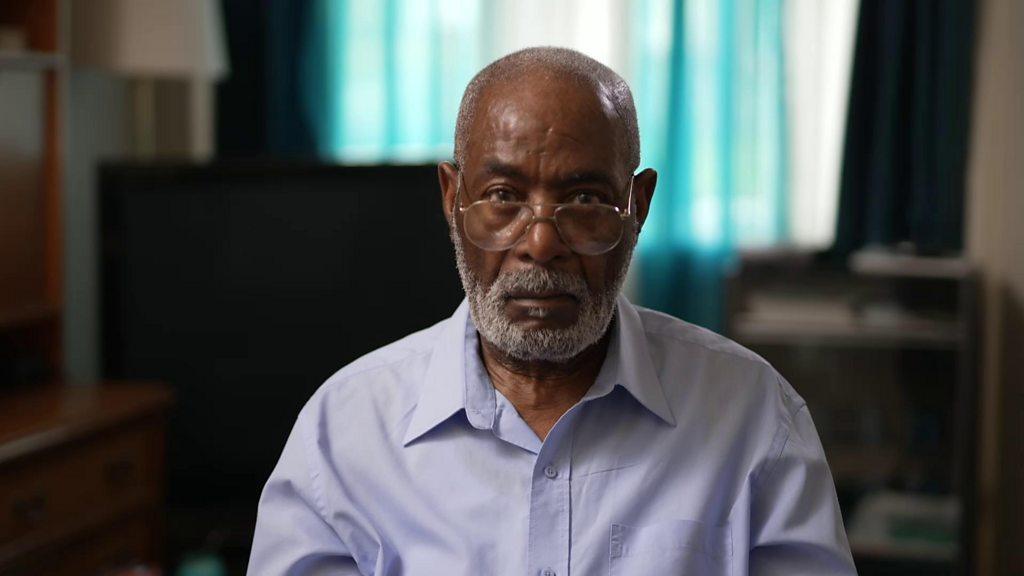
- Published17 November 2022
